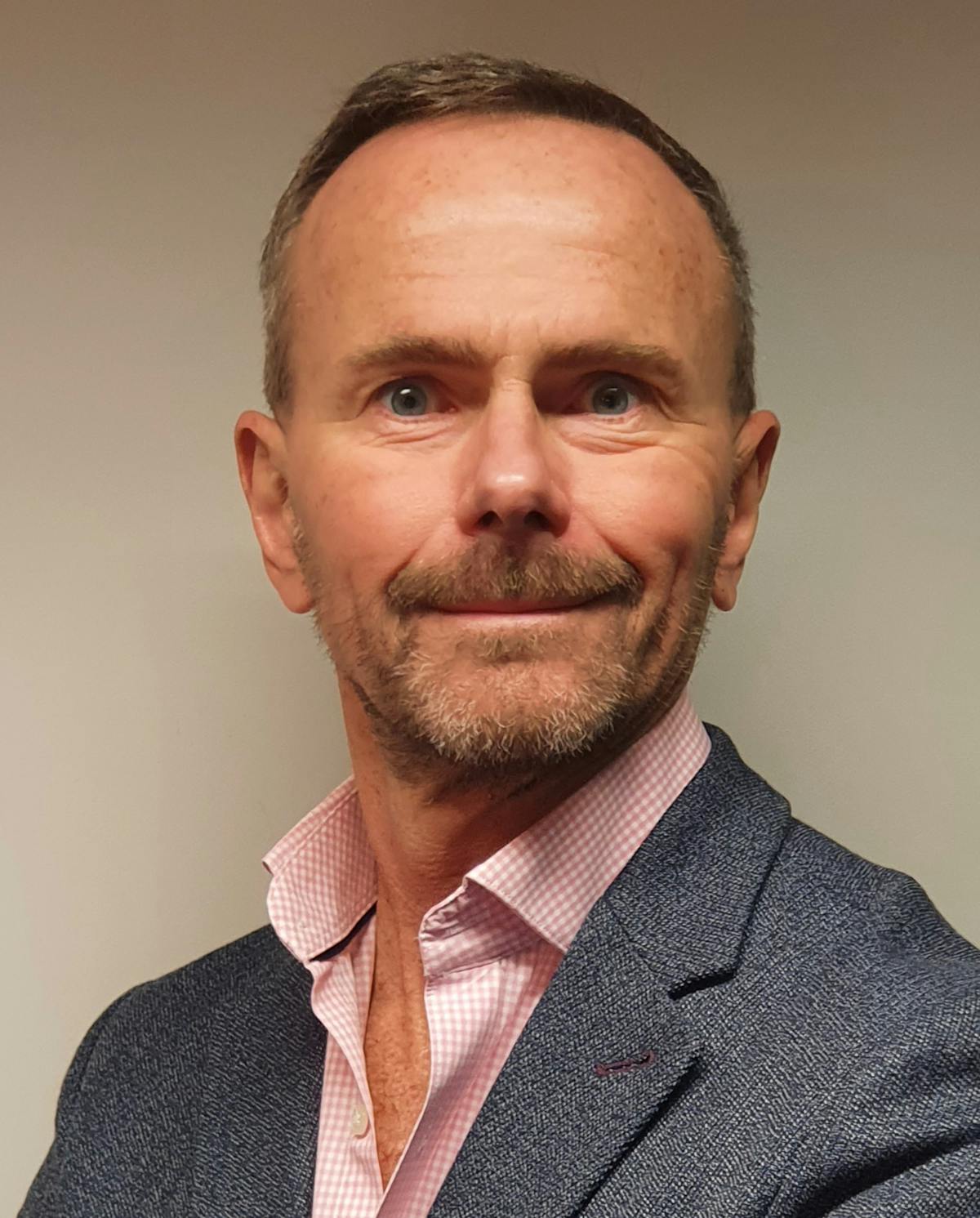We use cookies to effortlessly improve your experience on our site. Cookies also help us understand how our site is being used, so that we can keep making it better. You can read more about it in our cookie policy and change your settings here at any time.
“I think it’s embarrassing that it’s such an uneven playing field”

Kevin R Smith is the founder and CEO of BOOM & Partners, a multi-award-winning boutique business consultancy. After a career in business and finance he become aware that many SMEs have a great story but lack key skills and experience to help them achieve their full potential. Here he shares how he mentors businesses and why he focuses on female founders.
You have an interesting and varied background. How did you get to where you are now?
I went straight into banking when I left school. I worked for international banks in the City of London, and got promoted rapidly. I changed banks to progress my career but, by my late 20s, I was getting frustrated because I was working on trade deals and things weren’t going ahead because people weren’t thinking creatively enough. In 1996, I left banking to set up a business consultancy focused on working with early-stage businesses and helping them to scale.
I was also involved in macroeconomic government advisory work and was seconded to the British Government from 1999 to 2000. I helped develop the financial services and SME sectors in the first eight central European countries to join the EU. I've worked in about 45 different countries, seen a lot of different businesses and had a lot of fun!
Tell us a bit about BOOM & Partners and what the company does.
BOOM & Partners are a multi award-winning boutique business consultancy who mentor early-stage businesses to help them grow and prosper. We work with companies who need help with first concepts right up to those looking for £10m investment.
Our job is to help businesses understand what they need to do, and when and how they need to do it. We help them get investment ready which means working on everything from pitch decks and business plans right up to helping them understand how much they need to raise and how to value their company.
I love what I do because the entrepreneurs I meet have such fantastic ideas and in-depth knowledge of their sectors, but don’t necessarily know how to run a business or how to make things happen. That's where we come in.
I look at businesses as an outsider and challenge the founders on why they are doing certain things. I help them look at systems and get them in better shape to scale or produce pitch decks to help them get SEIS and EIS Advance Assurance.
How and why do you champion female founders?
Whilst BOOM & Partners doesn't shout about it, we have a particular focus on female founders. The reason we do, is frankly because I think it is embarrassing that it’s such an uneven playing field.
It was the original Rose Review that first opened my eyes to how bad the situation is. The numbers are getting better but still only about 2% of money from VCs goes into female founded businesses and 0.1% into ethnic minority female founded businesses. That is just disgusting! My favourite stat is there are more VCs run by white men called Dave than there are run by women. The good thing is that it is improving rapidly, but still from a low start point.
Part of the issue is that 'unconscious bias' means that people tend to want to back someone like themselves. So, if most VCs are run by white men, they tend to back other white male founders. There are now a growing number of successful female businesspeople and several VCs who are only investing in female founded businesses.
BOOM is one of the founding partners of Female Founders Growth. It was created by founder of A City Law Firm, Karen Holden, to support ambitious female founders who want to develop their knowledge, access expertise and scale-up to secure investment. I speak at many Female Founders Growth events and sit on judging panels for pitching events. I ensure female founded businesses are set up properly and are ready for growth.
As well as female founders, we are also working with ethnic minorities and other underrepresented groups to help them raise finance.
What are some of the key things female founders ask you?
In many ways they are no different to what men ask. The key thing women business owners need to understand is that most things are biassed against them to some extent which means they just need to work twice as hard!
Like most business owners, the biggest area that women struggle with is finance and raising funds, so my time is usually focused on these areas.
There are also lots of questions around valuing a business – it is broadly guesswork but there are some rules to help make that guesswork sensible and I can bring them into play.
I also try to introduce female founders to people in my network who can help.
One of the things I often say about being a founder is that it is like being a top sports person – nobody gets to be Usain Bolt without having the right team around them. That’s true in business as well; you've got to find the right short-term and long-term advisors to help you succeed.
You are particularly passionate about the Enterprise Investment Scheme, why is that?
SEIS (Seed Enterprise Investment Scheme) or EIS (Enterprise Investment Scheme) advance assurance is a fantastic tax break in the UK. If you are investing in early-stage businesses, you will get 50% of your investment back from HMRC for SEIS and 30% for EIS so businesses can use advance assurance to attract investors. I think it’s a piece of legislation that the government should learn from in other areas.
You’re also a business mentor – how and why did you start?
I did a master’s degree in Global Management and wrote my dissertation on looking at how micro and SMEs obtain access to finance. I then continued my studies by joining the Fintech Programme at Saïd Business School at the University of Oxford.
This led to me becoming a mentor for the NatWest Accelerator programme, the largest scheme in the UK supporting entrepreneurs to scale their businesses focusing on finance and commercial aspects, and I participate in live events, online webinars, and workshops.
I also mentor for Virgin StartUp, The Prince’s Trust, and Bayes Business School, offering support to businesses at different stages of their journey, all pro bono. At Bayes Business School, I mentor three students on topics ranging from initial business ideas to developing an MVP (minimum viable product).
Are there any trends for 2024 you can see in terms of female-led businesses?
Sustainability and the green and circular economies are growing areas and there tends to be a higher proportion of women in those sectors which is encouraging.
Tech is also a key growth sector, and women still need to be encouraged down the STEM route at school.
Overall, the trend is that it is becoming proportionately easier for women to raise finance than in the past, but that’s starting from a low level. You could say it’s twice as easy as last year but an increase from 2% to 4% of female founded businesses getting funding isn’t fantastic, is it?
Do you use The Gender Index data and how it is helping to drive positive change?
I have used the Gender Index data in the past, and I plan to use it much more in the future given that my writing is changing and will be more focused on political lobbying. I want to create change rather than help formulate a business plan and I will need data to support my writing.
Last November I wrote a piece for Real Business, just before Jeremy Hunt’s autumn statement, where I told the Chancellor what I thought he should be doing with the forthcoming budget. I said he should bring in incentives and legislation to ensure that more funding and support is provided to female founders and those from ethnic minorities.
I want to be pushing the female agenda hard which is part of the reason I am currently writing a book on female founders.
To draw on good, proper data is important with all these things, rather than just making vague comments. The Gender Index data will be key in this.

